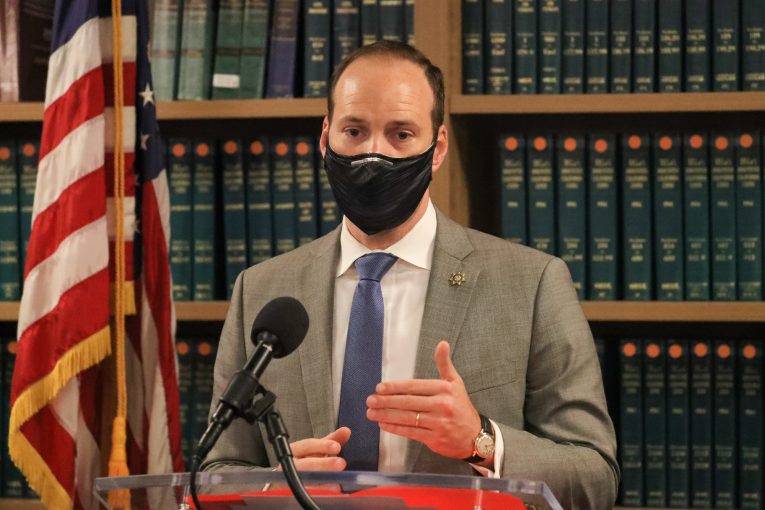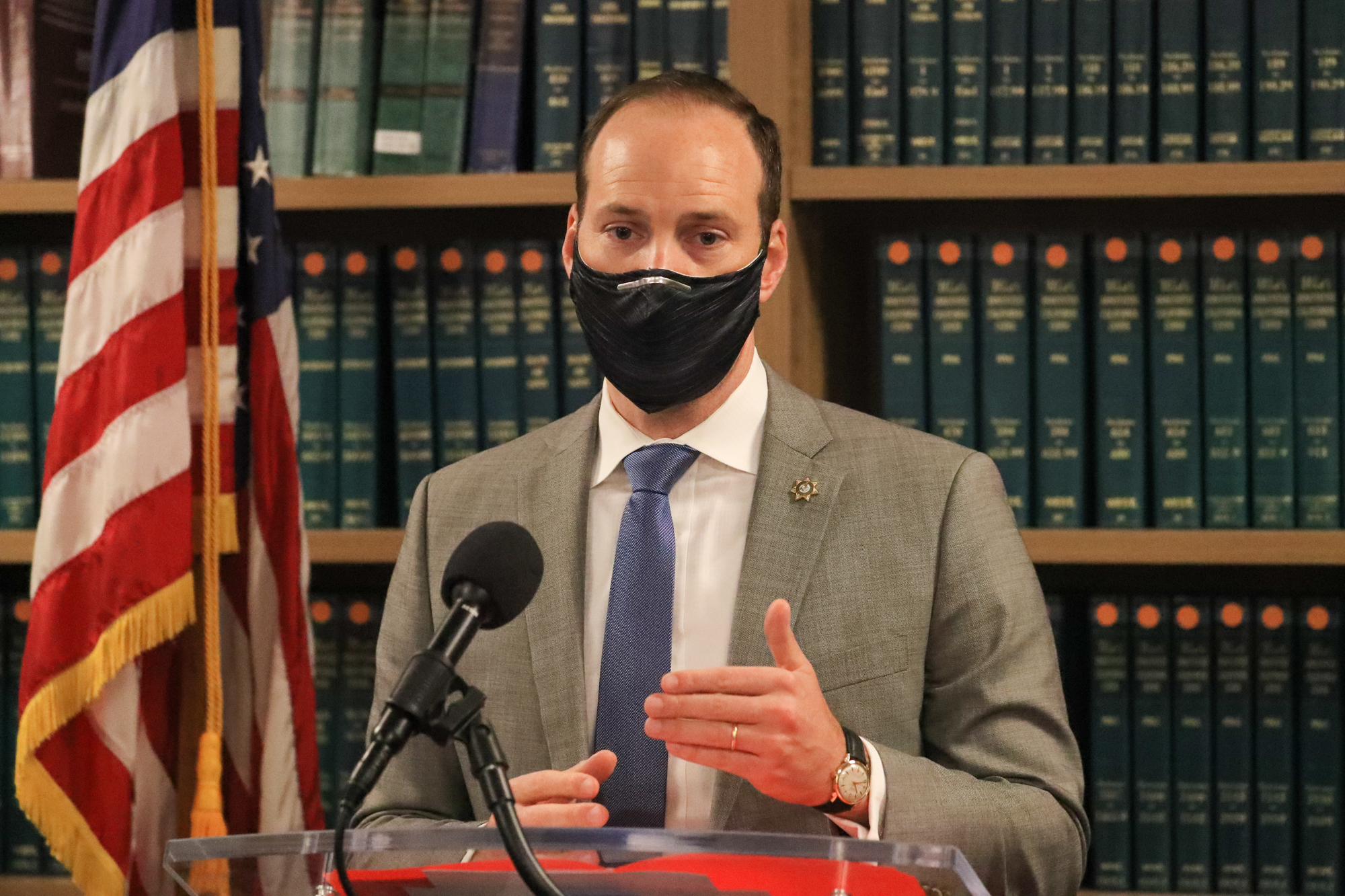

By Vanguard Staff
Sacramento, CA – Three weeks after revelations emerged that the San Francisco Police were using crime victim’s DNA to match against other crimes, Senator Scott Wiener has introduced SB 1228 the Genetic Privacy for Sexual Assault Victims Act.
SB 1228 is sponsored by San Francisco District Attorney Chesa Boudin, the Prosecutors Alliance of California, and sexual assault survivors.
“Sexual assault is among the most traumatic events that any person can experience, and we must do everything in our power to support and protect survivors who make the brave choice to come forward,” said Senator Wiener
SB 1228 protects sexual assault survivors and other victims by prohibiting the retention of DNA profiles collected from victims by local law enforcement agencies — including rape kits for sexual assault survivors. It also prohibits victims’ DNA from being used for any purpose other than identifying the perpetrator of the crime. Thus, a victim’s DNA could not be used in the future against the victim.
These protections help ensure the privacy of sexual assault survivors and promote public safety by encouraging survivors to report sexual violence. If a sexual assault survivor believes their rape kit DNA can be used against them in the future, they will have one more reason not to come forward and undergo an invasive rape kit examination.
SB 1228 was introduced following the discovery that a local law enforcement agency was retaining DNA collected from sexual assault survivors in its quality assurance database and then searching that database to incriminate survivors in unrelated crimes.
DA Boudin made the situation public and reportedly began working with Senator Wiener and survivor advocates on legislation to remedy this problem.
The issue has received national attention, Representative Adam Schiff has called for a federal investigation Advocates for sexual assault survivors and victim rights have widely condemned the practice and called for legislative action.
Senator Wiener explained,. “It’s unacceptable to use survivors’ DNA — given expressly for the purpose of finding or prosecuting a perpetrator — to incriminate that same survivor. Sexual assault exams are traumatic enough as it is; we don’t need to create additional reasons for survivors to forgo them. SB 1228 will help us protect survivors’ rights and privacy.”
“Victims of sexual assault should be encouraged and supported in coming forward to undergo sexual assault examinations to identify their perpetrator. Instead, the practice by a police crime lab that my office exposed treats victims like criminals. It not only violates their privacy, but it dissuades victims from reporting sexual violence—which makes us all less safe,” said District Attorney Boudin.
When victims report a sexual assault, they can consent to a sexual assault examination, also known as a rape kit. During this examination, biological evidence from bodily fluids, fingernail scrapings, and bite and scratch marks is collected from the victim’s body. The victim submits their own DNA sample in order to exclude their DNA from an investigation. In addition, reference samples of those who have close contact with the survivor—such as consensual sexual partners, family members, or other people living in the same household—may be collected as well to differentiate their DNA from that of the perpetrator.
At a press conference, Boudin pointed out that in the patient consent section, which he pointed out twice was in fine print and difficult to read, and even then, “there is no mention anywhere, even in this fine print that DNA, some admitted in this process can be used for purposes, unrelated to the investigation and prosecution of sexual assault. There is no reference anywhere, even in this fine print to the idea that your DNA could be stored in a law enforcement database indefinitely.”
The DA also worried that sexual assault is underreported as it is.
As Boudin noted, rape and sexual assault are “some of the most serious crimes that we see. They’re also some of the most underreported crimes. They’re also some of the crimes that are historically the hardest to prosecute precisely because of the kind of barriers that we’re here to talk about today.”
Supervisor Hillary Ronen added, “It is so burdensome to report rape. It is so hard that it doesn’t happen very often.”
Senator Wiener’s office said, “Sexual assault is significantly under-reported; fewer than a quarter of sexual assault survivors come forward to report to police. Of those survivors who do report, only a small percentage undergo the highly invasive process of sexual assault testing.
“Victims of sexual assault consent to their DNA collection for this purpose, not so that their DNA will be retained in a local law enforcement database permanently to be searched years later. Using victims’ DNA in order to potentially incriminate them in the future further dissuades sexual assault survivors from undergoing what is already a very difficult process. “
SB 1228 protects sexual assault survivors and other victims by prohibiting the DNA profiles collected from victims from being used for any purpose other than aiding in identifying the perpetrator. Local law enforcement agencies will also be prohibited from retaining and then searching victim DNA to incriminate them in unrelated crimes.
Federal law already prohibits the inclusion of victims’ DNA in the national Combined DNA Index System (CODIS). However, there is no corresponding California state law to prohibit local law enforcement databases from retaining victims’ profiles and searching them years later for entirely different purposes.
This legislation would remedy that by requiring DNA samples taken from victims to be used only for the sexual assault investigation. It would prohibit DNA samples from being included in any database that allows for a sample to be matched with DNA profiles obtained from crime scenes.
The bill would also instruct the Committee on Revision of the Penal Code to study whether additional steps are needed to protect the privacy of Californians who have submitted DNA samples to law enforcement, and determine whether a forensic oversight board is needed.
SB 1228 is also cosponsored by the Prosecutor’s Alliance and Black Women Revolt, an anti-domestic violence advocacy and resource group for Black women. Assemblymember Phil Ting is principal co-author of the legislation.
“We must do all we can to support survivors of sexual assault. This legislation sends the message that they can trust the criminal justice system and come forward to report their cases,” said Assemblymember Phil Ting.
“More than two thirds of sexual violence victims do not report the assault to law enforcement. Using a survivor’s rape kit for any other purpose other than to hold the perpetrator accountable further discourages survivors from coming forward, said Ilse Knecht, Joyful Heart Foundation’s Policy and Advocacy Director. “SB1228 signals to survivors in California that they and what happened to them matters, and is a step towards building survivors’ trust.”
